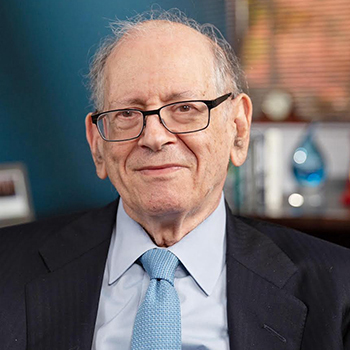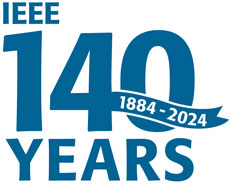
2024 IEEE Medal of Honor Recipient and Featured Panelist on the Fireside Chat with the 2024 IEEE Medal of Honor recipient.
Widely known as one of the “fathers of the Internet,” Robert Kahn has made extensive and unequaled contributions to the lifestyle, commerce, and culture of modern society.
Kahn began working in computer networking in 1966 when he joined Bolt Beranek and Newman (BBN) in Cambridge, Mass. There he was responsible for the system design of the ARPANET, the first packet-switched network. The project, funded by the Defense Advanced Research Projects Agency (DARPA), was the precursor to the Internet. It was during that time that he met IEEE Life Fellow Vint Cerf, who helped write ARPANET’s communication protocol.
In 1972, Kahn left BBN to become a program manager in DARPA’s information processing techniques office, which invested in computer hardware and software research. He continued to work on the ARPANET and organized the first public demonstration of the network at the 1972 International Conference on Computer Communications, held in Washington, D.C. Khan soon after conceived the idea of open-architecture networking.
In March 1973, he recruited Cerf to help him turn his idea into reality. At the time, Cerf was an assistant professor of computer science and electrical engineering at Stanford University. While working at DARPA, Kahn and Cerf designed the Transmission Control Protocol (TCP) and the Internet Protocol (IP). It took them six months to flesh out the TCP, which provides networks with end-to-end reliability, error recovery, and congestion control. The TCP introduced the concept of IP addresses. The TCP manages data packets sent over the Internet, making sure they don’t get lost, are received in the proper order, and are reassembled at their destination correctly. The IP manages the addressing and forwarding of data to and from its proper destinations. Together they make up the Internet’s core architecture and enable computers to connect and exchange information.
After a decade of testing, the TCP/IP protocol suite was officially adopted by the ARPANET in 1983. In particular, it was Kahn’s leadership and dedicated efforts in the application of the packet network concept that led to the development of the Internet, which has become indispensable to our society. Without the Packet Radio and Packet Satellite components of TCP/IP, the Internet might not have evolved such a resilient design to overcome the lossy potential of radio-based systems.
In 1983, Kahn was promoted to director of the information processing techniques office. As director, he launched several initiatives including the U.S. government’s Strategic Computing Program, which funded the development and implementation of multiprocessor computer architectures with major investments in natural language processing, speech understanding, image understanding, and expert systems. It must be noted that Kahn has made deep technical contributions in all of these projects in addition to managing them to successful completion or operation. The Strategic Computing Program at DARPA triggered a wave of new computing technologies and applications that resonate to this day. For instance, the Gigabit Networking program demonstrated the feasibility and utility of gigabit networking but, more importantly, solidified connections between the academic and telecommunications business communities that inform today’s mobile communication environment.
After 13 years at DARPA, Kahn left the organization in 1986 to launch the Corporation for National Research Initiatives. The nonprofit, based in Reston, Va., undertakes, fosters, and promotes research in the strategic development of network-based information technologies. It also provides leadership and funding for information infrastructure research and development. Together with Cerf, Kahn in 1992 also founded the Internet Society, a nonprofit organization that helps set technical standards, develops Internet infrastructure, and advises policymakers.
Kahn has received several recognitions for his work, including the 2004 Turing Award from the Association for Computing Machinery. The honor is known as the Nobel Prize of computing. He also received the 1997 IEEE Alexander Graham Bell Medal together with Cerf. Over the decades, Kahn has been a mentor to many innovators, and his technical and managerial breadth is the extraordinary lever that has allowed him to contribute in so many different ways to today’s digital transformations. The economic impact of Kahn’s work reaches the hundreds of billions of dollars per year, and he continues to set the stage for new innovations in digital technology and its applications.
An IEEE Life Fellow, Kahn is President and CEO, Corporation for National Research Initiatives, Reston, Virginia, USA.


